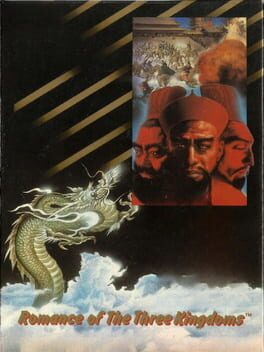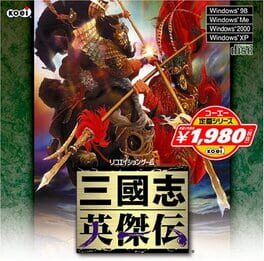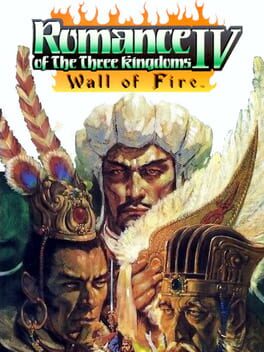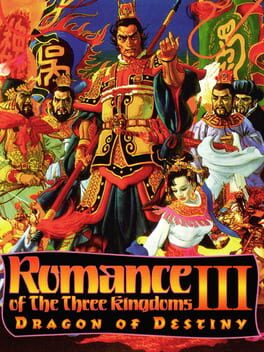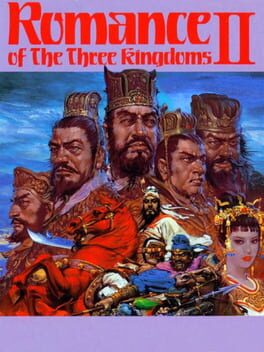

The player takes control of a master, a general capable of commanding as many states as he can acquire, and, if successful, unifies China. As many as eight may play, but only one can succeed. There are five chronologically arranged scenarios. The first has China in its most disorganized period and the last has virtually all of China controlled by one of three generals. The precise requirements for success in each of these scenarios differs, but in all cases the goal is to rule as many states as possible. After the completion of any scenario but number five the game will automatically advance to the next. You may start the game at any scenario. Koei's Romance of The Three Kingdoms is based on an historical novel of the same name written in the Fourteenth Century, which was in turn based on a more serious official work of history by Ch'en Shou (233-297 A.D.), who chronicled major historical events in China from 220 to 265 A.D. Your master strives to unite China. You must enlist the help of others, fight well and negotiate shrewdly. Without able and loyal subordinates you will not be able to win the game. Choosing good people and winning their loyalty will not be easy and all the able and loyal subordinates in the world will not help if diplomatic and military resources are not used well.
Also in series
Released on
Genres
Reviews View More
For some reason, a month ago I decided to move past that first instinct and give the game more of a chance. This was the first NES game I played where I needed to thoroughly read the instruction manual to understand any part of what was going on, and even then I messed up a lot of things for the first few hours. As the hours went by, though, I really began to enjoy the game. There are frustrating moments, sure. For example, many times I would enter into a war with another country and there would be a constant push-and-pull where I would take one of their states, and they would take one of mine. While frustrating in the moment, this tug of war really wove an interesting emergent narrative specific to my campaign, and made victory all the sweeter. Seeing the color of your empire gradually spread across China as you conquer more and more gave me the same exciting feeling as playing Civilization V. Unfortunately, Sangokushi is definitely not as visually appealing as the latter. This is obviously due to technological limitations, but the representations of the states and even the battle screens leave a lot to be desired visually. The game is also incredibly slow in terms of how quickly the game executes your commands. There is not much variety in the soundtrack, and even when you do conquer more areas of China, you will really only hear three tracks for the map during the whole game. As previously stated, reading a PDF of the instruction manual is also a must, especially since there aren't as many guides on this game online that I could find. While I was still able to get used to these factors, this might be a deal-breaker for some.
Its unfortunate that Koei's historical sim strategy games never really took off in the West as much as they should. Sangokushi 1, Nobunaga's Ambition 1, and Genghis Khan are relatively easy to find in used game stores and online for a good price, but Sangokushi 2, Nobunaga 2, Bandit Kings of Ancient China, L'Empreur, and the rest of the NES Koei games are all incredibly rare and expensive by comparison. When I would search for info on the first game, or the series in general, on Youtube or Google, I would not find many results at all. It sucks because I really love these games now and they have actually got me interested in the real history they are based on. The instruction manuals include biographies of some of the generals you can play as and some more historical background that is still interesting even though it only covers a fraction of the history at play. If you are willing to really learn a new game and have any interest in the old school, strategy games, history, or any combination of those, I can't recommend this game enough.
